Work Order Management Streamline Your Workflows, Enhance Productivity.
An intuitive, centralized platform to create, track, and complete work orders seamlessly optimizing efficiency and minimizing downtime.
Book a DemoAn intuitive, centralized platform to create, track, and complete work orders seamlessly optimizing efficiency and minimizing downtime.
Book a Demo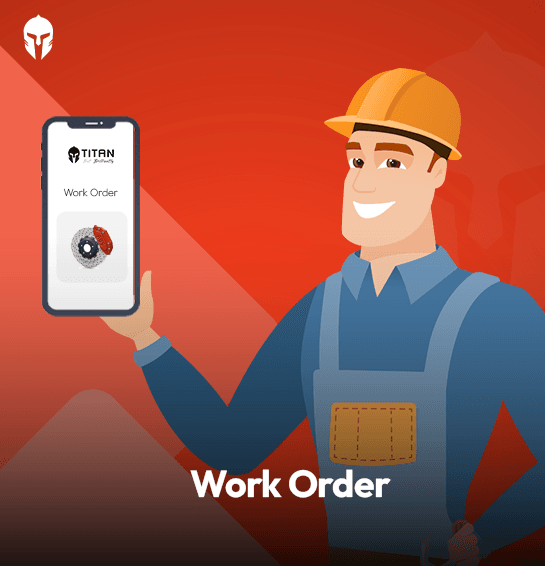
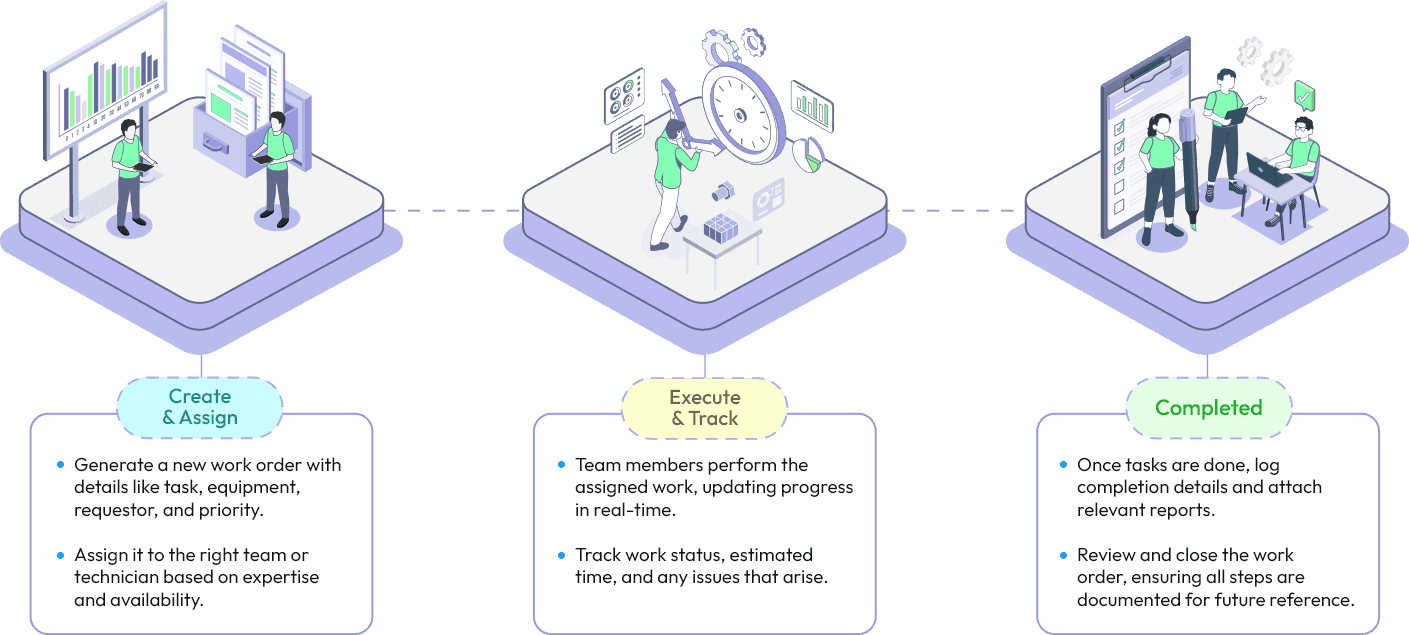
Trusted by R&D labs around the world
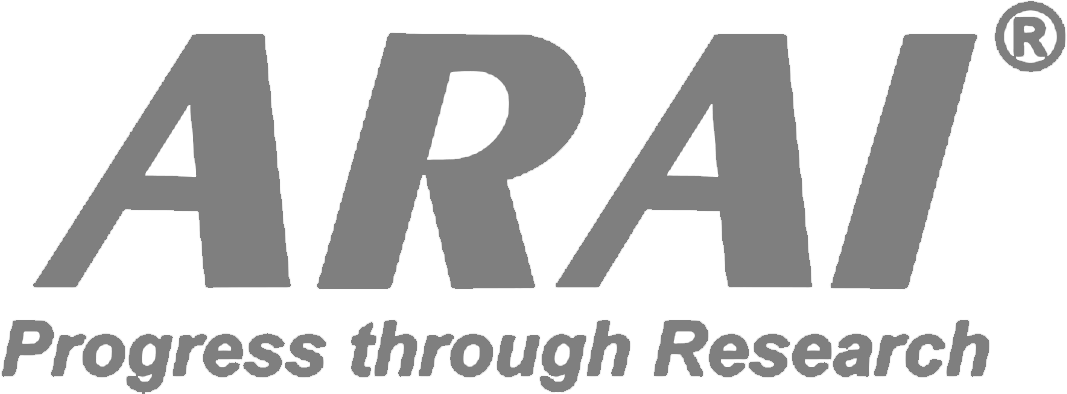





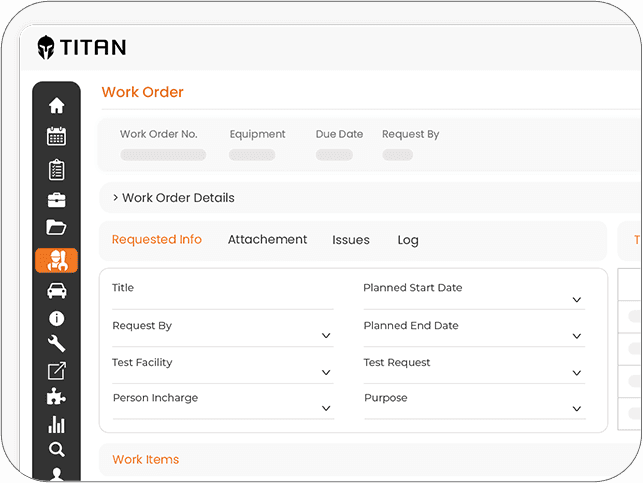
Replace spreadsheets with a single platform to track assignments, progress, and completion efficiently.
Creation and approvals to assign tasks instantly, reducing delays and improving efficiency.
Get a clear view of work orders to prioritize tasks, enhance collaboration, and eliminate bottlenecks

Replace spreadsheets with a single platform to track assignments, progress, and completion efficiently.
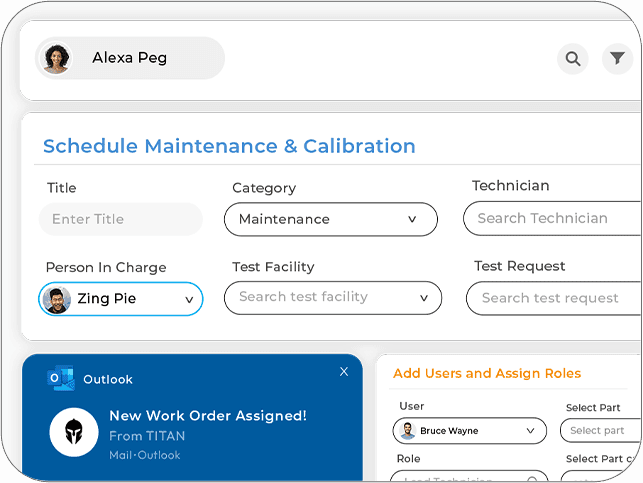
Schedule maintenance to prevent failures and efficiently manage emergency work orders.
Assign tasks based on technician skills, location, and availability to ensure timely completion.
Real-time alerts notify teams about new work orders, status updates, and approvals to keep operations running smoothly.

Schedule maintenance to prevent failures and efficiently manage emergency work orders.
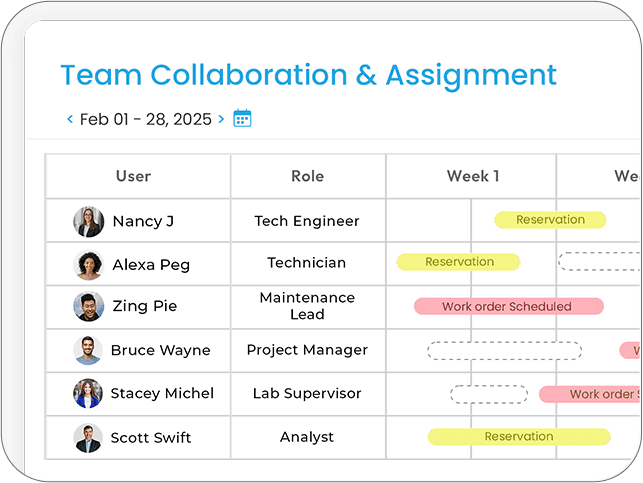
Ensure task responsibility by assigning work orders to the right team members, reducing miscommunication.
Analyze work trends and performance with real-time reports for optimized operations.
Improve resource allocation, extend asset lifespan, and prevent costly emergency repairs.

Ensure task responsibility by assigning work orders to the right team members, reducing miscommunication.
Users can create, assign, and track work orders across multiple categories (Equipment, Facility, General, Test Article, Modification Requests). Work orders include details like title, requester, test facility, start/end date, purpose, and work article.
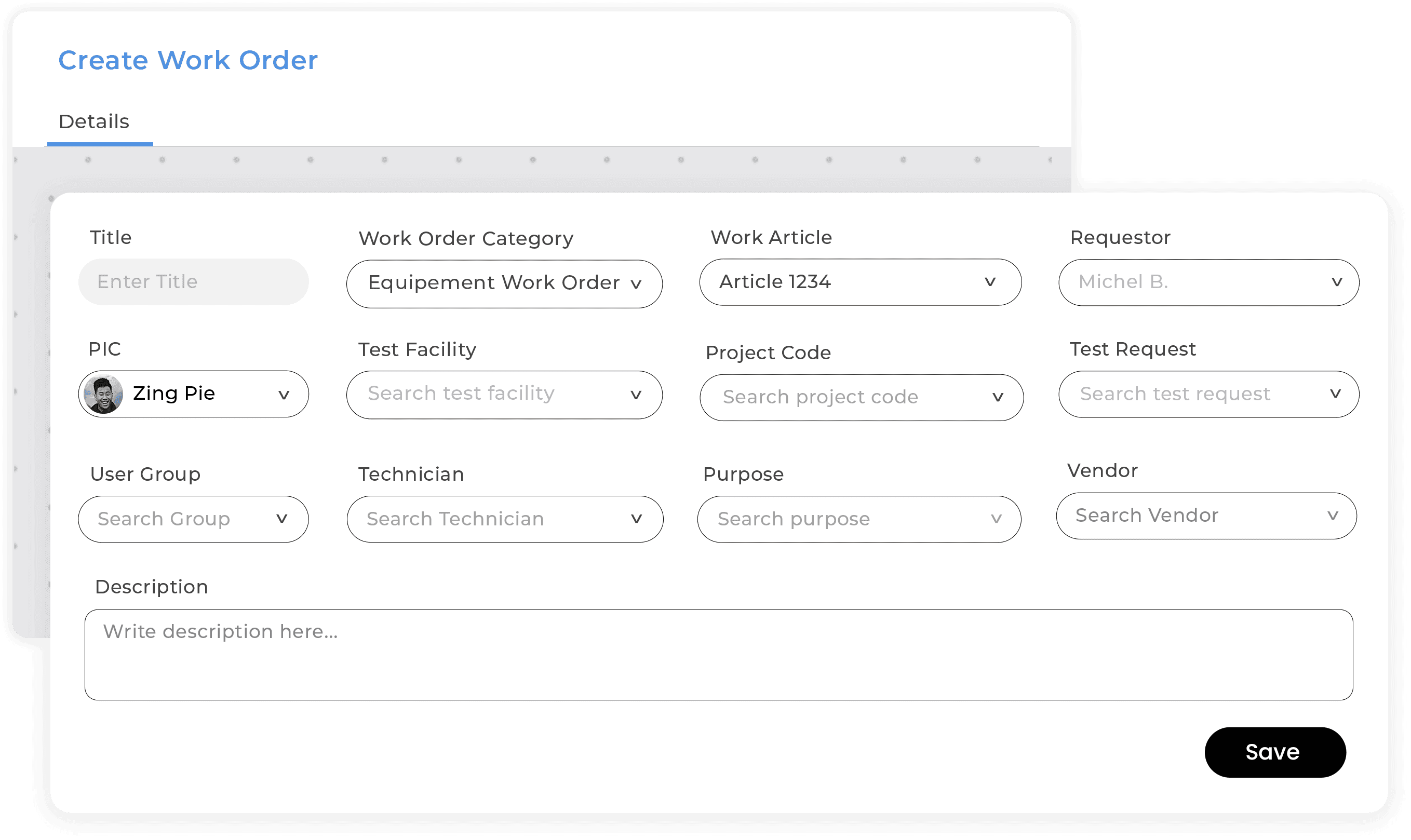

Take control of your work order management with TITAN. Easily create, assign, and track work orders across equipment, facilities, test articles, and user-related tasks—all in one intuitive platform. Stay ahead of maintenance schedules, prevent conflicts with test events, and ensure seamless collaboration between teams. With real-time updates and a centralized workflow, TITAN keeps your operations efficient and your team aligned.

TITAN’s Work Order Management system is an intuitive, centralized platform that allows you to create, track, and complete work orders seamlessly. It integrates maintenance, test-related tasks, and facility operations, helping you optimize efficiency and minimize downtime.
TITAN supports multiple work order types, including Equipment, Facility, Test Article, General, and Modification Work Orders. Each type is tailored to specific tasks—ranging from equipment calibration and test preparation to modifications in test articles.
Yes! TITAN allows you to create custom work orders beyond the predefined lists. You can specify your own title, type, work article details, and assign tasks based on your unique requirements. This flexibility helps you manage specific tasks or unique test scenarios effectively.
TITAN distinguishes between dependent and independent work orders. Dependent work orders are linked to other tasks (e.g., sensor setup must be completed before a test can begin), while independent work orders can be executed on their own schedule. This structure ensures that all prerequisite tasks are completed before moving forward.
For the automotive sector, TITAN can manage facilities like Vehicle Crash Test Labs, Engine Testing Facilities, Battery Testing Labs, Wind Tunnel Facilities, and Vibration Testing Labs. Each facility is linked to specific test components (e.g., airbag systems, battery packs, aerodynamic spoilers) to provide targeted test and maintenance operations.
TITAN provides a team collaboration dashboard where work orders are assigned to specific team members based on their roles and expertise. Real-time notifications and shared updates ensure clear accountability, while performance logs and history tracking help in resource planning and compliance monitoring.
With TITAN, users can access detailed logs of past work orders, check-in/check-out times, and individual performance histories. These insights help in tracking maintenance trends, planning future tasks, and ensuring optimal resource allocation for both preventive and reactive maintenance.